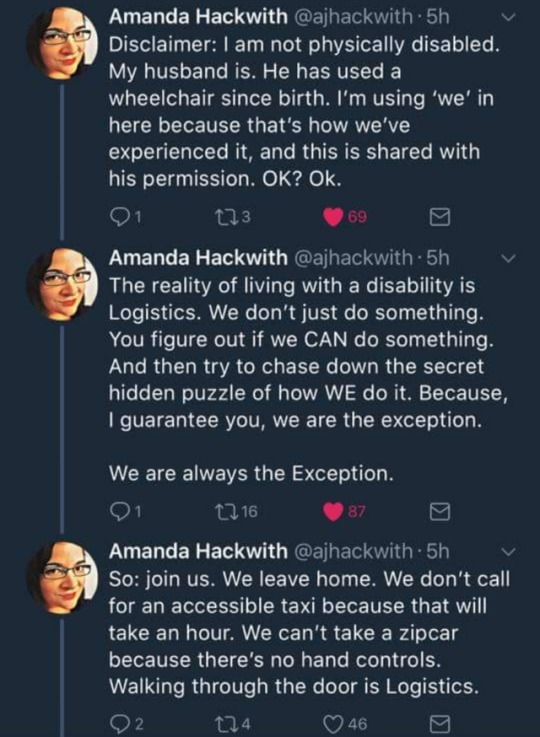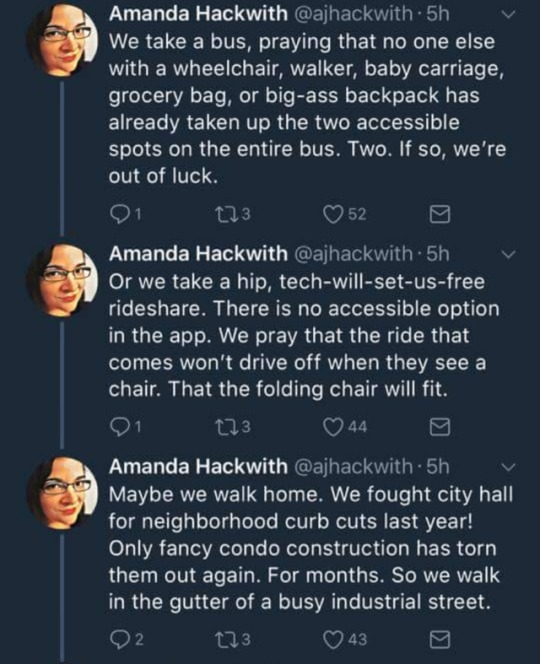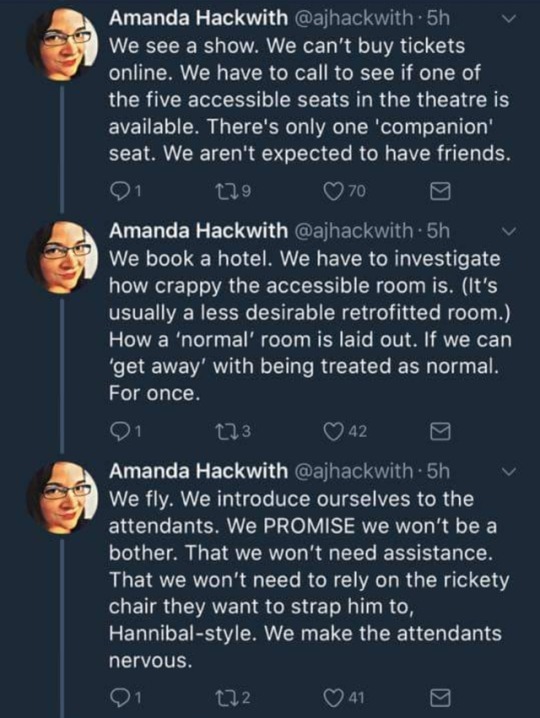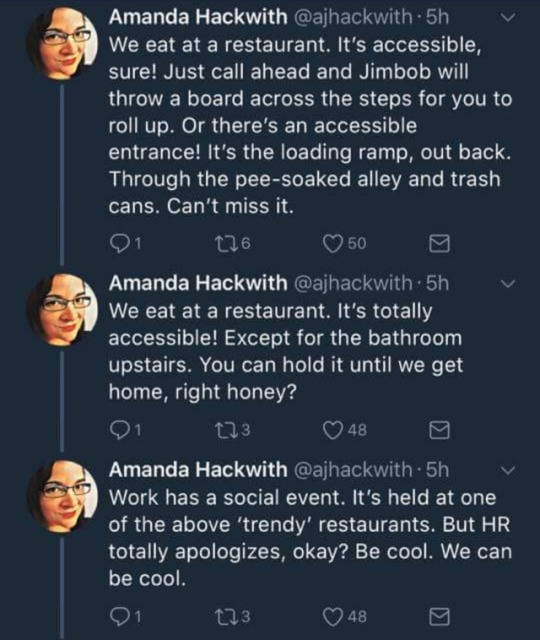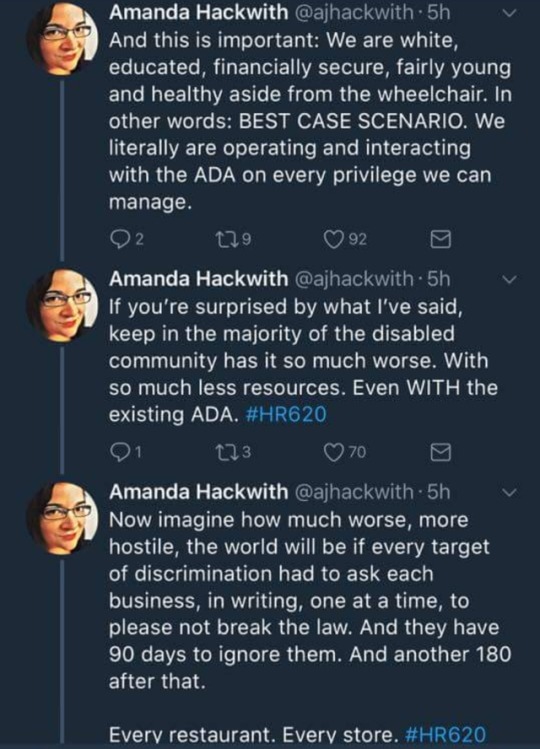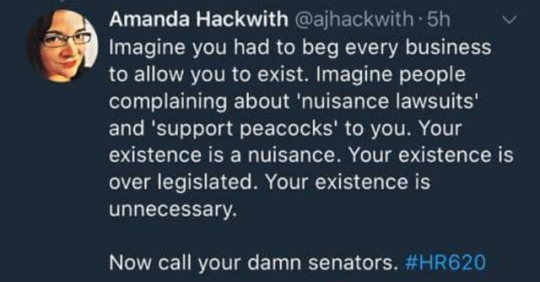Looking for Flux Capacitors please advise Early 30’s—mostly a lurker and reblogger—
Don't wanna be here? Send us removal request.
Text
I think that the discussion about the Alien Enemies Act is the most detailed section of my "100 harmful policies from Trump's first 100 days" report.
Whatever you've heard about this, it's worse than that. This is worth reading from start to finish:





2K notes
·
View notes
Text
Every complex ecosystem has parasites

I'm on a 20+ city book tour for my new novel PICKS AND SHOVELS. Catch me at NEW ZEALAND'S UNITY BOOKS in AUCKLAND on May 2, and in WELLINGTON on May 3. More tour dates (Pittsburgh, PDX, London, Manchester) here.

Patrick "patio11" McKenzie is a fantastic explainer, the kind of person who breaks topics down in ways that stay with you, and creep into your understanding of other subjects, too. Take his 2022 essay, "The optimal amount of fraud is non-zero":
https://www.bitsaboutmoney.com/archive/optimal-amount-of-fraud/
It's a very well-argued piece, and here's the nut of it:
The marginal return of permitting fraud against you is plausibly greater than zero, and therefore, you should welcome greater than zero fraud.
In other words, if you allow some fraud, you will also allow through a lot of non-fraudulent business that would otherwise trip your fraud meter. Or, put it another way, the only way to prevent all fraud is to chase away a large proportion of your customers, whose transactions are in some way abnormal or unexpected.
Another great explainer is Bruce Schneier, the security expert. In the wake of 9/11, lots of pundits (and senior government officials) ran around saying, "No price is too high to prevent another terrorist attack on our aviation system." Schneier had a foolproof way of shutting these fools up: "Fine, just ground all civilian aircraft, forever." Turns out, there is a price that's too high to pay for preventing air-terrorism.
Latent in these two statements is the idea that the most secure systems are simple, and while simplicity is a fine goal to strive for, we should always keep in mind the maxim attributed to Einstein, "Everything should be made as simple as possible, but not simpler." That is to say, some things are just complicated.
20 years ago, my friend Kathryn Myronuk and I were talking about the spam wars, which were raging at the time. The spam wars were caused by the complexity of email: as a protocol (rather than a product), email is heterogenuous. There are lots of different kinds of email servers and clients, and many different ways of creating and rendering an email. All this flexibility makes email really popular, and it also means that users have a wide variety of use-cases for it. As a result, identifying spam is really hard. There's no reliable automated way of telling whether an email is spam or not – you can't just block a given server, or anyone using a kind of server software, or email client. You can't choose words or phrases to block and only block spam.
Many solutions were proposed to this at the height of the spam wars, and they all sucked, because they all assumed that the way the proposer used email was somehow typical, thus we could safely build a system to block things that were very different from this "typical" use and not catch too many dolphins in our tuna nets:
https://craphound.com/spamsolutions.txt
So Kathryn and I were talking about this, and she said, "Yeah, all complex ecosystems have parasites." I was thunderstruck. The phrase entered my head and never left. I even gave a major speech with that title later that year, at the O'Reilly Emerging Technology Conference:
https://craphound.com/complexecosystems.txt
Truly, a certain degree of undesirable activity is the inevitable price you pay once you make something general purpose, generative, and open. Open systems – like the web, or email – succeed because they are so adaptable, which means that all kinds of different people with different needs find ways to make use of them. The undesirable activity in open systems is, well, undesirable, and it's valid and useful to try to minimize it. But minimization isn't the same as elimination. "The optimal amount of fraud is non-zero," because "everything should be made as simple as possible, but not simpler." Complexity is generative, but "all complex ecosystems have parasites."
America is a complex system. It has, for example, a Social Security apparatus that has to serve more than 65 million people. By definition, a cohort of 65 million people will experience 65 one-in-a-million outliers every day. Social Security has to accommodate 65 million variations on the (surprisingly complicated) concept of a "street address":
https://gist.github.com/almereyda/85fa289bfc668777fe3619298bbf0886
It will have to cope with 65 million variations on the absolutely, maddeningly complicated idea of a "name":
https://www.kalzumeus.com/2010/06/17/falsehoods-programmers-believe-about-names/
In cybernetics, we say that a means of regulating a system must be capable of representing as many states as the system itself – that is, if you're building a control box for a thing with five functions, the box needs at least five different settings:
http://pespmc1.vub.ac.be/REQVAR.html
So when we're talking about managing something as complicated as Social Security, we need to build a Social Security Administration that is just as complicated. Anything that complicated is gonna have parasites – once you make something capable of managing the glorious higgeldy piggeldy that is the human experience of names, dates of birth, and addresses, you will necessarily create exploitable failure modes that bad actors can use to steal Social Security. You can build good fraud detection systems (as the SSA has), and you can investigate fraud (as the SSA does), and you can keep this to a manageable number – in the case of the SSA, that number is well below one percent:
https://www.congress.gov/crs_external_products/IF/PDF/IF12948/IF12948.2.pdf
But if you want to reduce Social Security fraud from "a fraction of one percent" to "zero percent," you can either expend a gigantic amount of money (far more than you're losing to fraud) to get a little closer to zero – or you can make Social Security far simpler. For example, you could simply declare that anyone whose life and work history can't fit in a simple database schema is not eligible for Social Security, kick tens of millions of people off the SSI rolls, and cause them to lose their homes and starve on the streets. This isn't merely cruel, it's also very, very expensive, since homelessness costs the system far more than Social Security. The optimum amount of fraud is non-zero.
Conservatives hate complexity. That's why the Trump administration banned all research grants for proposals that contained the word "systemic" (as a person with so-far-local cancer, I sure worry about what happens when and if my lymphoma become systemic). I once described the conservative yearning for "simpler times," as a desire to be a child again. After all, the thing that made your childhood "simpler" wasn't that the world was less complicated – it's that your parents managed that complexity and shielded you from it. There's always been partner abuse, divorce, gender minorities, mental illness, disability, racial discrimination, geopolitical crises, refugees, and class struggle. The only people who don't have to deal with this stuff are (lucky) children.
Complexity is an unavoidable attribute of all complicated processes. Evolution is complicated, so it produces complexity. It's convenient to think about a simplified model of genes in which individual genes produce specific traits, but it turns out genes all influence each other, are influenced in turn by epigenetics, and that developmental factors play a critical role in our outcomes. From eye-color to gender, evolution produces spectra, not binaries. It's ineluctably (and rather gloriously) complicated.
The conservative project to insist that things can be neatly categorized – animal or plant, man or woman, planet or comet – tries to take graceful bimodal curves and simplify them into a few simple straight lines – one or zero (except even the values of the miniature transistors on your computer's many chips are never at "one" or "zero" – they're "one-ish" and "mostly zero").
Like Social Security, fraud in the immigration system is a negligible rounding error. The US immigration system is a baroque, ramified, many-tendriled thing (I have the receipts from the immigration lawyers who helped me get a US visa, a green card, and citizenship to prove it). It is already so overweighted with pitfalls and traps for the unwary that a good immigration lawyer might send you to apply for a visa with 600 pages of documentation (the most I ever presented) just to make sure that every possible requirement is met:
https://www.flickr.com/photos/doctorow/2242342898/in/photolist-zp6PxJ-4q9Aqs-2nVHTZK-2pFKHyf
After my decades of experience with the US immigration system, I am prepared to say that the system is now at a stage where it is experiencing sharply diminishing returns from its anti-fraud systems. The cost of administering all this complexity is high, and the marginal amount of fraud caught by any new hoop the system gins up for migrants to jump through will round to zero.
Which poses a problem for Trump and trumpists: having whipped up a national panic about out of control immigration and open borders, the only way to make the system better at catching the infinitesimal amount of fraud it currently endures is to make the rules simpler, through the blunt-force tactic of simply excluding people who should be allowed in the country. For example, you could ban college kids planning to spend the summer in the US on the grounds that they didn't book all their hotels in advance, because they're planning to go from city to city and wing it:
https://www.newsweek.com/germany-tourists-deported-hotel-maria-lepere-charlotte-pohl-hawaii-2062046
Or you could ban the only research scientist in the world who knows how to interpret the results of the most promising new cancer imaging technology because a border guard was confused about the frog embryos she was transporting (she's been locked up for two months now):
https://www.msn.com/en-us/health/other/horrified-harvard-scientists-ice-arrest-leaves-cancer-researchers-scrambling/ar-AA1DlUt8
Of course, the US has long operated a policy of "anything that confuses a border guard is grounds for being refused entry" but the Trump administration has turned the odd, rare outrage into business-as-usual.
But they can lock up or turn away as many people as they want, and they still won't get the amount of fraud to zero. The US is a complicated place. People have complicated reasons for entering the USA – work, family reunion, leisure, research, study, and more. The only immigration system that doesn't leak a little at the seams is an immigration system that is so simple that it has no seams – a toy immigration system for a trivial country in which so little is going on that everything is going on.
The only garden without weeds is a monoculture under a dome. The only email system without spam is a closed system managed by one company that only allows a carefully vetted cluster of subscribers to communicate with one another. The only species with just two genders is one wherein members who fit somewhere else on the spectrum are banished or killed, a charnel process that never ends because there are always newborns that are outside of the first sigma of the two peaks in the bimodal distribution.
A living system – a real country – is complicated. It's a system, where people do things you'll never understand for perfectly good reasons (and vice versa). To accommodate all that complexity, we need complex systems, and all complex ecosystems have parasites. Yes, you can burn the rainforest to the ground and planting monocrops in straight rows, but then what you have is a farm, not a forest, vulnerable to pests and plagues and fire and flood. Complex systems have parasites, sure, but complex systems are resilient. The optimal level of fraud is never zero, because a system that has been simplified to the point where no fraud can take place within it is a system that is so trivial and brittle as to be useless.

If you'd like an essay-formatted version of this post to read or share, here's a link to it on pluralistic.net, my surveillance-free, ad-free, tracker-free blog:
https://pluralistic.net/2025/04/24/hermit-kingdom/#simpler-times
619 notes
·
View notes
Text
Seems like all the things people say are "missing the point" or "not doing enough" about saving pollinators, actually are doing some good.
Like No Mow May and leaving your lawn weeds alone, sure it's important to be planting species native to your area, but cosmopolitan lawn weeds like dandelions are actually really important for pollinators even in areas where they're not native. Gas powered lawn mowers put out a shit ton of CO2, way more per hour of use than cars, and the other air pollutants caused by lawn mowers are bad for us, so it's great to cut down on lawn mowing any way possible.
And on top of all that, a month of not mowing gives enough time for wild flowers to start growing where they couldn't before, so if you participate in no mow may, you might not NEED to plant native flowers because you might already have them
same thing with "save the bees" and focusing on honeybees, the pesticides that are affecting honeybees are also killing our native pollinators, so it will benefit them all to stop spraying.
people getting into beekeeping is good, even though honey bees aren't the ones endangered, it shows people how they are in symbiosis with other life forms.
And I'm reading a book about beekeeping, cause dad wants to keep bees, and the book says if you keep bees you will have to talk to your neighbors about pesticides and how they will harm the bees. That is a benefit to the whole ecosystem if someone is educating the people around them about the harms of pesticides
On top of that, more people are experiencing firsthand that honey comes from bees and consequently, understanding that insects aren't just scary and bad, and when they see a bee maybe they won't feel threatened and want to destroy it but instead think "oh yeah that is my friend that gives me delectable treats"
It is recommended to offer your neighbors honey from your hives. If they put pesticides on their flowers, they will put poison in the honey they were promised, if they get any honey at all
3K notes
·
View notes
Text
I feel like "trump wants to throw away literal dinosaur fossils" would really turn heads if we actually had a functional opposition party in this country to get messages out, but I guess I'll just have to get a paint pen and write it on my car. fine, I'll do it.
40K notes
·
View notes
Text
we need to slow down a little I'm so serious. all these quick short videos on tiktok, ig reels, and youtube, artists releasing quick little songs for the trend, tv shows releasing episodes at once, people using chat gpt and google ai overview because they get answers quickly but no validation done for the source, we need to sloww downn i really do not think our brains should be running this fast
34K notes
·
View notes
Text
Something I don't think we talk enough about in discussions surrounding AI is the loss of perseverance.
I have a friend who works in education and he told me about how he was working with a small group of HS students to develop a new school sports chant. This was a very daunting task for the group, in large part because many had learning disabilities related to reading and writing, so coming up with a catchy, hard-hitting, probably rhyming, poetry-esque piece of collaborative writing felt like something outside of their skill range. But it wasn't! I knew that, he knew that, and he worked damn hard to convince the kids of that too. Even if the end result was terrible (by someone else's standards), we knew they had it in them to complete the piece and feel super proud of their creation.
Fast-forward a few days and he reports back that yes they have a chant now... but it's 99% AI. It was made by Chat-GPT. Once the kids realized they could just ask the bot to do the hard thing for them - and do it "better" than they (supposedly) ever could - that's the only route they were willing to take. It was either use Chat-GPT or don't do it at all. And I was just so devastated to hear this because Jesus Christ, struggling is important. Of course most 14-18 year olds aren't going to see the merit of that, let alone understand why that process (attempting something new and challenging) is more valuable than the end result (a "good" chant), but as adults we all have a responsibility to coach them through that messy process. Except that's become damn near impossible with an Instantly Do The Thing app in everyone's pocket. Yes, AI is fucking awful because of plagiarism and misinformation and the environmental impact, but it's also keeping people - particularly young people - from developing perseverance. It's not just important that you learn to write your own stuff because of intellectual agency, but because writing is hard and it's crucial that you learn how to persevere through doing hard things.
Write a shitty poem. Write an essay where half the textual 'evidence' doesn't track. Write an awkward as fuck email with an equally embarrassing typo. Every time you do you're not just developing that particular skill, you're also learning that you did something badly and the world didn't end. You can get through things! You can get through challenging things! Not everything in life has to be perfect but you know what? You'll only improve at the challenging stuff if you do a whole lot of it badly first. The ability to say, "I didn't think I could do that but I did it anyway. It's not great, but I did it," is SO IMPORTANT for developing confidence across the board, not just in these specific tasks.
Idk I'm just really worried about kids having to grow up in a world where (for a variety of reasons beyond just AI) they're not given the chance to struggle through new and challenging things like we used to.
38K notes
·
View notes
Text

Excluding the crucial fact that office jobs pay you an income….if staying home to raise children and do chores and bake bread was really so much easier and more joyful than working in an office on some objective level, why aren’t men doing it? Why aren’t they chomping at the bit to be ~leisurely house husbands~ to a working wife? Why aren’t they stepping up to depend solely on someone else’s income in exchange for round-the-clock domestic labor, if it’s really as blissful and their propaganda suggests? Curious.
61K notes
·
View notes
Text
The first thing I noticed was that the pain was gone. The tall, thin, hooded figure let me bask in that for a moment.
IT IS TIME
"Oh," I said, looking down at the frail vessel I had inhabited all my life. "Right."
COME
"Do you remember," I asked as we walked, "everyone you come for?"
YES
"Fondly?"
I DO NOT JUDGE. AS A RULE, I SPEND LITTLE TIME WITH PEOPLE AS THEY LIVE
"No, but you spend some time with them after, like now."
Death halted.
THERE WAS ONE, TEN YEARS AGO. HE TAUGHT ME A LOT ABOUT WHAT IT MEANS TO BE HUMAN
"To be where the rising ape meets the falling angel?"
AH. I HEAR YOU HAVE MET HIM TOO
6K notes
·
View notes
Text

The famous banana plantations of Montana will save us all from potassium deficiencies.
Just kidding, we'll all get hypokalemia because the watermelon industry will also tank because Hegseth will do donuts in an MRAP through several key watermelon fields.
312 notes
·
View notes
Text
Are you an American? Do you love our nation's national parks, our libraries, affordable health care, and essential checks and balances? DO YOU NOT WANT TO GO TO WAR WITH CANADA?
Fuck, are you just a European and you're highly emotionally invested in what's going on?
Well good news, help spread the news. Special elections April 1st and this is going to help break down the narrow majority Republicans hold on Congress.
Florida has two congressional seats up for election April 1st, and Wisconsin has a highly televised race for their supreme court Court that Elon Musk has invested millions into.
If you're Floridian, check to see if you're eligible to vote in either of the elections listed here.
If you're a Wisconsinite, for some ungodly reasons about half of your election information is buried in Google and hidden amongst government websites but, find your polling place now.
6K notes
·
View notes
Text
love shakespeare. did a hamlet run tonight, looked someone dead in the eye to say “am i a coward?” during a speech and the fucker shrugged and nodded
125K notes
·
View notes
Text
every single discussion about the fucking signal groupchat makes me feel so insane. "what a display of incompetence! what a failure! let's all make accidental groupchat mistake jokes now" what the fuck are you talking about. it worked. the fact that THIS is the conversation now is literally the point. jeffrey goldberg literally did it again. selling the bombing of the middle east to the public is the entire purpose of his career as a "journalist"
12K notes
·
View notes
Text
Fall in love and also get married while fat. Have professional photos taken while fat.
141 notes
·
View notes
Text
This is possibly the most insane national security story in the last 50 years. Includes a massive text chain between senior members of the Trump admin gaming out foreign policy and war plans on Signal, and they accidentally added a reporter to the group chat.
31K notes
·
View notes











